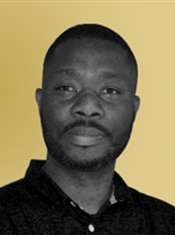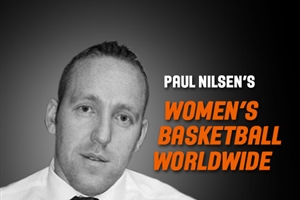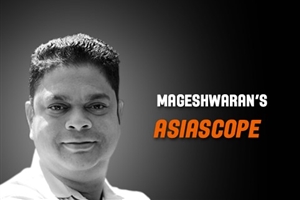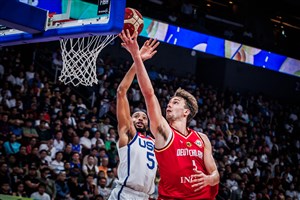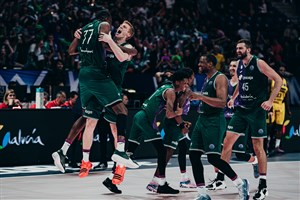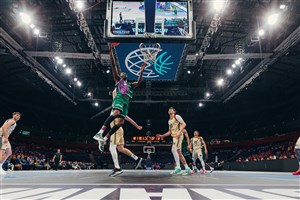
Guimarães' Angolan national team challenge
SHEFFIELD (Julio Chitunda's African Message) - José Carlos Guimarães, the newly-appointed head coach of Angola's Men's National Team, deserves praises for accepting his new role as he is the fifth man to lead the former African champions in just six years.
Guimarães showed boldness by accepting the post, even though, as a former international he had never hidden the desire of coaching his country national team.
In the last six years, Angola have been coached by Alberto Carvalho, Luís Magalhães, Michel Gomez and Jaime Covilhã.
Guimarães is the third national team coach in a year.
Realistically speaking, Angola is not experiencing the best time in its basketball history, and the future seems quite dubious.
In April last year, the Angolan Basketball Federation (FAB) appointed Frenchman Gomez with the intention of keeping him in the job for at least a year and half, had he qualified the team to the 2012 Olympics Games.
Instead, Gomez was sacked midway through the 2011 Afrobasket in Madagascar last summer. His assistant, Jaime Covilhã, took over at the Quarter-Final stages of the tournament and led the team all the way to the Final, where they lost 67-56 to Tunisia and, consequently, missed out on direct qualification to the London Games.
What followed next was what Angolans were not accustomed to: they blamed FAB for the national team failure to win their 11th title. Meanwhile, it sounded surprising for some African countries, who always praised FAB’s planning and organisation.
Covilhã, who had a fantastic introduction as the national team head coach in Madagascar after a thrilling 84-83 Quarter-Final victory over Cameroon, said at the time that his players refused to lose that epic game despite trailing most of contest, and that in his opinion they were the best players in the world.
They were psychologically strong, he said at the time.
Surprisingly when I asked him, three months later (in November of last year) whether he was going to keep the job, he immediately responded that he was not, and he didn’t specify.
Apparently FAB may have not offered him what he wanted.
At the time I thought Covilhã was the right man for the job.
However, Guimarães was confirmed on 19 May in a crucial moment of Angolan basketball and he deserves tribute for it.
To assist him, Guimarães chose Angolan Emanuel Trovoada, a former Cape Verde national team head coach.
The most intriguingly question is how Angolan men will perform at the FIBA Olympic Qualifying Tournament (OQT), an event they have never played.
Now, Guimarães, one of Angola's best players in the late 1980s and 1990s, is handed the tough challenge to revert what seems a difficult moment of Angolan basketball history.
The National League
Just to put things in context, let’s look at how things are running in domestic competitions.
Primeiro D’Agosto, the Angolan men's national team’s main provider, last won the national league two years ago, and re-signed Portuguese Mario Palma - the most successful coach with the national team - and added international 38-year-old Gerson Monteiro to the roster.
With Palma, D’Agosto lost the African Club Championship to Tunisian club Etoile du Sahel.
Last week, before Guimarães’ appointment, D’Agosto lost the national league to Recreativo do Libolo.
And D’Agosto’s national team players under-performed throughout the second phase of the national league.
Preliminary squad
Guimarães has announced his preliminary squad and that includes five Primeiro D’Agosto players, and two from the new champions Libolo, including Olimpio Cipriano and Luis Costa, two internationals who missed last year’s Afrobasket.
In my view, Guimarães’s main priority for now should not be New Zealand nor FYROM, Angolan’s opponents in the first stage of the OQT. Instead he should focus on his new players.
Last year, when I asked Covilhã what profile the national team coach should have, he said whoever was appointed had to be able to motivate, communicate and understand his players.
That answer made me wonder if perhaps a psychologist may also be needed to join Guimarães' coaching staff.
It is early days to assess Guimarães role, even though he has had reasonably success with a minor club, Sporting de Cabinda, and a top-four Angola side, Inter Clube de Luanda.
The coach
As a player Guimarães, was a small forward who represented his country and shone for over a decade, especially at the 1992 Olympics.
He also served as assistant coach at the 2006 FIBA World Championship.
Something he should not be accused of is a lack of international experience.
Hopefully I may be able to catch up with Guimarães in the next few days, and one of my questions will be whether he took over at the right time.
Knowing his public speeches and thinking of a conversation we had five years ago, in which he seemed a very confident man, he probably will answer affirmatively.
Julio Chitunda
FIBA
FIBA’s columnists write on a wide range of topics relating to basketball that are of interest to them. The opinions they express are their own and in no way reflect those of FIBA.
FIBA takes no responsibility and gives no guarantees, warranties or representations, implied or otherwise, for the content or accuracy of the content and opinion expressed in the above article.
